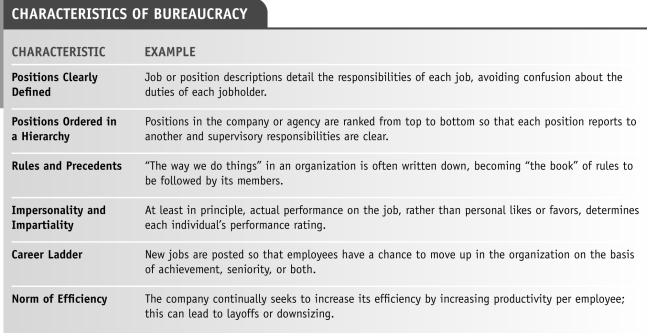Exam 6: Interaction in Groups
Exam 1: Sociology: An Introduction175 Questions
Exam 2: The Tools of Sociology167 Questions
Exam 3: Culture155 Questions
Exam 4: Societies and Nations172 Questions
Exam 5: Socialization167 Questions
Exam 6: Interaction in Groups163 Questions
Exam 7: Sexuality150 Questions
Exam 8: Deviance and Social Control179 Questions
Exam 9: Collective Behavior, Social Movements, and Mass Publics157 Questions
Exam 10: Stratification and Global Inequality164 Questions
Exam 11: Inequalities of Social Class163 Questions
Exam 12: Inequalities of Race and Ethnicity184 Questions
Exam 13: Inequalities of Gender113 Questions
Exam 14: Inequalities of Youth and Age112 Questions
Exam 15: The Family155 Questions
Exam 16: Religion129 Questions
Exam 17: Education121 Questions
Exam 18: Economic Institutions146 Questions
Exam 19: Politics and Political Institutions166 Questions
Exam 20: Health and Medicine73 Questions
Exam 21: Population, Urbanization and the Environment157 Questions
Exam 22: Global Social Change182 Questions
Select questions type
 -In the study chart shown below (Characteristics of Bureaucracy), which of those is described as "the book", to be followed by the members of the organization?
-In the study chart shown below (Characteristics of Bureaucracy), which of those is described as "the book", to be followed by the members of the organization?
Free
(Multiple Choice)
4.9/5  (41)
(41)
Correct Answer:
C
All of the following are characteristic of a primary group EXCEPT:
Free
(Multiple Choice)
5.0/5  (39)
(39)
Correct Answer:
A
John and Katie both worked at the same firm and lost their jobs during the recent recession. After a period of time, they both were able to find work again, but while John's new job paid enough to sustain a comfortable lifestyle, he no longer made as much as Katie, who's new job paid even more than her old one. John is suffering from:
Free
(Multiple Choice)
4.9/5  (32)
(32)
Correct Answer:
C
Why is the idea of the "definition of the situation"important to the understanding of group dynamics?
(Essay)
4.7/5  (39)
(39)
When people make interaction decisions on the basis of calculations of costs and benefits, they are operating under which of the following principles?
(Multiple Choice)
4.8/5  (43)
(43)
The more relationships there are in a group, the more likely it is that there will be conflict and jealousy.
(True/False)
4.9/5  (42)
(42)
Stanley Milgram found that the reason why a large proportion of his subjects were willing to obey any order they received was because they enjoyed inflicting pain on other people.
(True/False)
4.7/5  (27)
(27)
All of the following are characteristic of social groups EXCEPT:
(Multiple Choice)
4.9/5  (36)
(36)
Social network analysis has been used to study all of the following EXCEPT:
(Multiple Choice)
4.8/5  (40)
(40)
Functionalists focus on how format, structure, and bureaucracy emerge in groups as a response to disagreement or power struggle.
(True/False)
4.8/5  (32)
(32)
In Wuthnow's study of social groups, he determined that people in the United States most often join:
(Multiple Choice)
4.8/5  (31)
(31)
Principles of interaction that help explain both stability and change in human groups, include all of the following EXCEPT the:
(Multiple Choice)
4.8/5  (33)
(33)
According to Max Weber, rational motives are easy to understand and predict because ends and means can be calculated and behavior changed on the basis of experience.
(True/False)
4.9/5  (33)
(33)
According to Emile Durkheim, as a society becomes more complex all of the following occur EXCEPT:
(Multiple Choice)
4.9/5  (34)
(34)
Which of the following statements about voluntary associations is NOT true?
(Multiple Choice)
4.9/5  (43)
(43)
Studies of how people form friendship groups in suburban communities found that:
(Multiple Choice)
4.9/5  (30)
(30)
In a group, the individual who initiates the most interactions tends to be the most respected member of the group.
(True/False)
4.8/5  (33)
(33)
All of the following are examples of secondary groups EXCEPT a:
(Multiple Choice)
4.8/5  (35)
(35)
Anne, Beth, Cindy, and Debbie spend a lot of time together, are each other's "best friends" and in general have strong positive feelings about each other. In sociological terms, they can be characterized as a:
(Multiple Choice)
4.9/5  (37)
(37)
Showing 1 - 20 of 163
Filters
- Essay(0)
- Multiple Choice(0)
- Short Answer(0)
- True False(0)
- Matching(0)